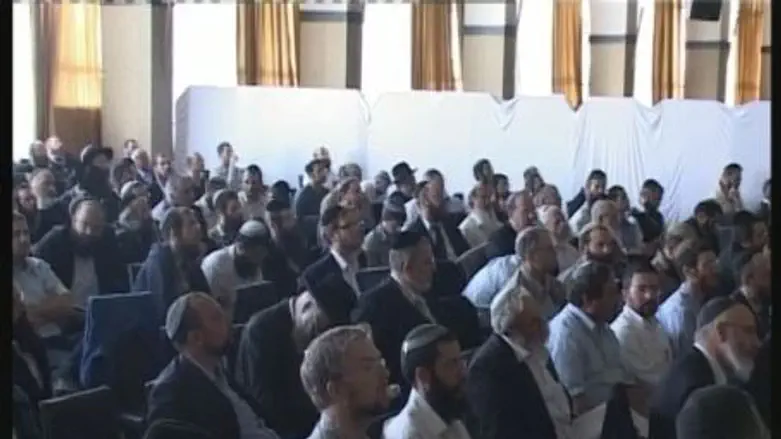
Gynecologists who will take part in the 12th annual conference of the Puah Institute have been receiving threats from their colleagues, according to Rav Menachem Burstein, who heads the Israel-based international institute, which helps couples suffering from infertility through the process of building a family.
Rav Burstein said the doctors making the threats tell the participating doctors that they will refuse to work with them if they do not pull out of the conference. The threats, he told Arutz Sheva, are part of a campaign backed by the New Israel Fund, which has been trying to put an end to Puah's conferences for the past four years.
"This is a threat that constitutes a criminal offense," added Rav Burstein. "We checked this. A consumer boycott is a common thing but threats and boycotts among doctors are a completely criminal matter."
The New Israel Fund and its religious women's group, Kolech, want the conference shut down because the speakers – rabbis and gynecologists – are all men, and no female gynecologists are invited to address the conference. Well-known women gynecologists, such as Dr. Hannah Katan of Laniado Hospital, attend the conference year after year without making an issue of the separation.
The rabbi explained that while the overwhelming majority of Puah's activities do include female doctors, the annual conference is specifically intended to reach as wide a religious audience as possible. Therefore men and women are seated separately and female doctors are excluded, because members of ultra stringent hareidi-religious streams would not attend the conference otherwise. The Institute's greatest achievement is the breakthrough in this population, which did not turn to fertility clinics until Puah was established and it has nowhere else to go.
Rav Burstein added: "364 days a year, we serve the entire public, and women appear before women… This, however, is the way to reach the hareidi populace, and the conference's numerous successes in its 12 year history attest to that." He called on "all organizations" to "show what true openness is" and to respect the religious requirements of others.
He said that he had tried to engage Kolech in dialogue over the years but that they turned him down. This year they did meet him but he felt that they were not sincerely listening to him: "We tried to explain to them, but they felt that it was a shame to stop such a campaign. They want to ride the big wave of 'women's exclusion'," he said.
The ground rules for the conference were laid down by top decisors including Rav Mordechai Eliyahu ztz"l and Rav Moshe Feinstein ztz"l.